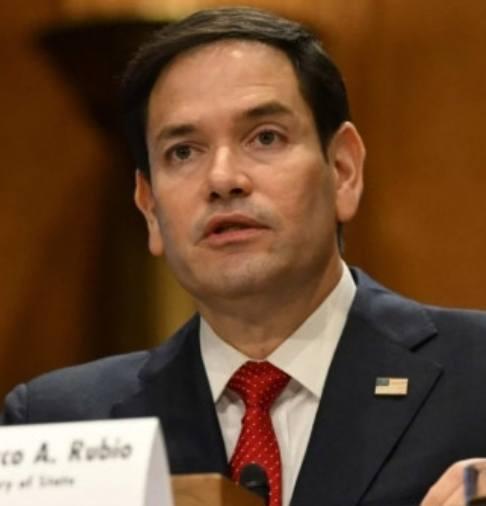In a bold move underscoring the Trump administration’s stance on international environmental agreements, Secretary of State Marco Rubio has officially rejected the United Nations’ climate proposal aimed at achieving “net zero” emissions in global shipping. The announcement, made today, highlights growing tensions between the United States and multilateral organizations over policies perceived as burdensome to American interests.
Rubio, speaking from Washington, D.C., described the International Maritime Organization’s (IMO) proposed “Net-Zero Framework” as nothing short of a tax imposed on Americans by an unaccountable UN body. “The United States will not accept any environmental agreement that harms the interests of the American people,” Rubio stated emphatically. He led a joint rejection alongside key cabinet members, including Commerce Secretary Howard Lutnick, Energy Secretary Chris Wright, and Transportation Secretary Sean Duffy, signaling a unified front from the administration.

The proposal, which seeks to slash greenhouse gas emissions in the shipping industry, has been met with fierce opposition from the U.S. government. Rubio warned IMO members that the United States would actively seek their support in opposing the measure. “Our fellow IMO members should be on notice that we will look for their support against this action and not hesitate to retaliate or explore remedies for our citizens should this endeavor fail,” he said. This stern language suggests potential diplomatic or economic repercussions if the plan advances without U.S. backing.

At the heart of the rejection is the framework’s potential economic impact. Rubio detailed how the plan would impose mandatory fees and stringent fuel standards, driving up costs for American energy providers, shipping companies, tourists, and everyday consumers. The Trump team has dismissed the initiative outright, vowing not to tolerate any actions that inflate costs for U.S. households and businesses. Critics within the administration argue that the proposal mandates the use of expensive alternative fuels that are not yet available at scale, inadvertently benefiting competitors like China, which dominates much of the global supply chain for such technologies.

Even smaller vessels could face millions in additional fees under the plan, according to Rubio. This would directly translate to higher prices for imported goods, energy supplies, and leisure activities such as cruises, disproportionately affecting working families. “We’re talking about everyday Americans paying more at the pump, in stores, and on vacations because of unattainable standards pushed by international bureaucrats,” Rubio explained.
The IMO’s framework targets large ships, which account for approximately 85% of the shipping industry’s CO2 emissions. Starting in 2027, it would enforce mandatory emissions limits and carbon pricing mechanisms. Proponents within the UN argue that this is essential to align the maritime sector with global climate goals, given that shipping contributes significantly to worldwide greenhouse gases. The IMO, a specialized UN agency with 176 member states, has been advocating for these changes to integrate climate requirements into an industry long criticized for its environmental footprint.
However, detractors, including U.S. officials and industry experts, contend that the timeline is unrealistic and the economic fallout would be severe. They point out that the required technologies—such as low-emission fuels and advanced propulsion systems—remain unproven at the necessary scale. “Forcing companies to depend on experimental solutions isn’t environmental progress; it’s economic sabotage,” one shipping industry analyst noted, echoing the administration’s concerns.
This rejection comes amid broader skepticism from the Trump administration toward UN-led initiatives. President Trump has repeatedly emphasized prioritizing American sovereignty and economic growth over international accords that could hinder domestic industries. The shipping sector, vital to global trade and U.S. commerce, handles trillions in goods annually, making any regulatory changes a high-stakes issue.

Environmental groups have expressed disappointment, arguing that the U.S. withdrawal could undermine collective efforts to combat climate change. “Shipping emissions are a major contributor to global warming, and delaying action only exacerbates the crisis,” said a spokesperson for an international climate advocacy organization. Yet, Rubio countered that the proposal overlooks practical realities, such as supply chain disruptions and the lack of viable alternatives.
The administration’s position may influence other nations, particularly those reliant on U.S. trade partnerships. As IMO deliberations continue, the U.S. has positioned itself as a defender of national interests against what it views as overreaching global governance.
This development reflects ongoing debates about balancing environmental imperatives with economic realities. While the UN pushes for ambitious targets to limit warming, countries like the U.S. are drawing lines where they see threats to prosperity. As Rubio concluded, “We support a clean environment, but not at the expense of American jobs and families.” The full ramifications of this rejection will unfold in the coming months, potentially reshaping international maritime policy. (Word count: 652)





